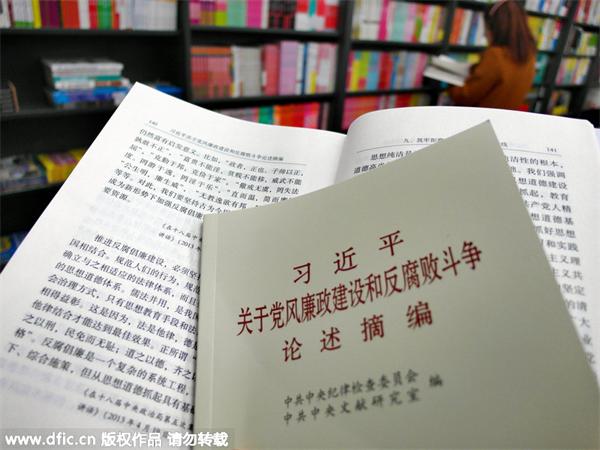 |
|
A book about Chinese president Xi Jinping's remarks on anti-corruption.[Photo/IC] |
Cao Wenzhuang, a former director of the State Food and Drug Administration's drug registration department, who in 2007 was sentenced to death with a two-year reprieve for taking bribes and dereliction of duty, reportedly had his sentence commuted to 14 years and three months in prison, after he turned in about 1.15 million yuan ($174,904) of illicit gains after eight years in prison. Rednet.cn questions whether convicted officials should be able to purchase lighter sentences in this way.
True, Cao is entitled to a reduced penalty as long as he is deemed to have fully confessed his crime. But his belated handing over of a large amount of illicit money, which took him eight years to decide to do, does not justify the latest commuting of his sentence.
That, to some extent, indicates that he might have intentionally refrained from admitting some of his criminal activities in the first place, which goes against the country's basic judicial spirit that "only those who genuinely confess deserve leniency, and those who resist shall face harsher punishments".
Such being said, Cao's confession, eight years after his conviction, basically means that he refused to genuinely confess before he received his sentence.
But if Cao's sentence had not been reduced after turning in his illegal income, it is possible that more imprisoned corrupt officials would have refrained from fully admitting their wrongdoings, as there would be no incentive for them to do so. However, what is even more noteworthy is why the investigation failed to locate all his illicit gains in the first place, and whether he told the truth in his confession.
In other words, it will deal a rather heavy blow to the ongoing anti-corruption campaign, if he manages to reduce his sentence bit by bit simply by turning in some illicit money from time to time. Besides, there should also be a recalculation of his sentence because the original one did not involve the embezzlement he recently disclosed.